Smart packing strategies to lighten your load, reduce stress, and make travel easier.
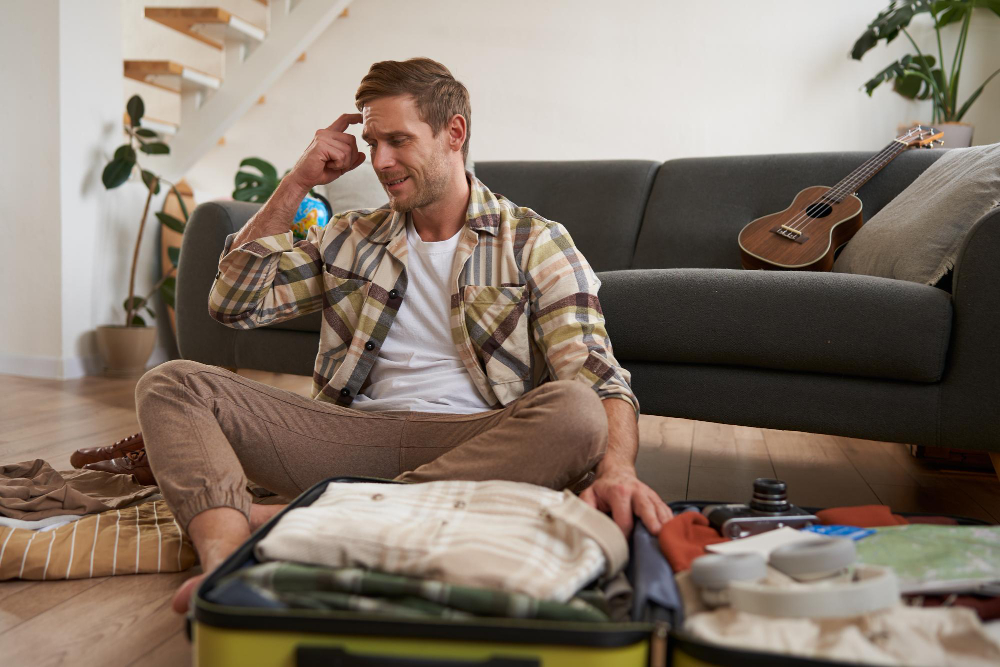
If you’ve ever found yourself struggling to close your suitcase, you’re not alone. Chronic overpackers know the stress of bringing too much—and the hassle it adds to any trip. Overpacking can lead to costly airline fees, heavy bags, and constant worry about what’s in your luggage. But with a few smart strategies, you can learn to pack lighter and travel with ease.
Here are 12 stress-relief tips to help you master the art of packing just the right amount and enjoy a more carefree journey.
1. Make a Packing List First
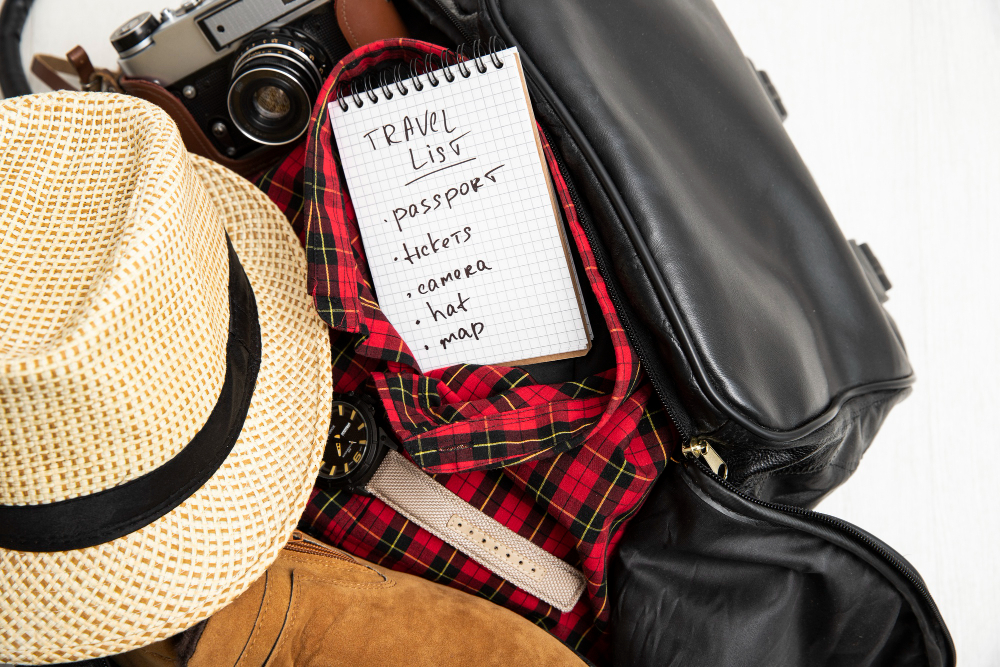
Creating a packing list before you even touch your suitcase can be a game-changer for overpackers. By planning out each item in advance, you focus on what’s essential, making it easier to resist the urge to pack everything. Start by categorizing essentials like clothing, toiletries, and electronics, and stick to only what’s necessary. A packing list also acts as a reminder to avoid last-minute “just-in-case” items, which are often unnecessary. This small step can keep you organized, limit stress, and ensure you bring only what you need.
2. Pack Only Versatile Clothing
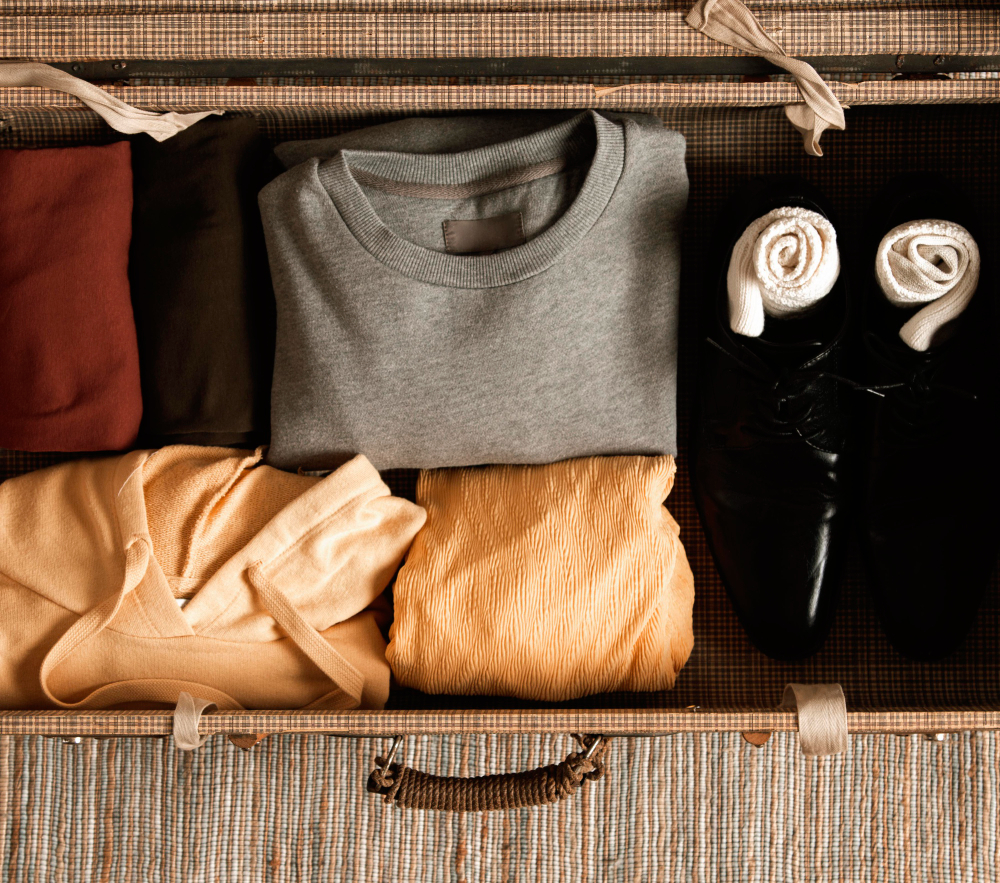
Packing versatile clothing items saves space and reduces decision fatigue. Choose items that can be mixed, matched, or layered, such as neutral-colored tops, pants, and jackets. By packing versatile pieces, you’ll have multiple outfit options without bringing excessive clothing. For example, a plain t-shirt can work for casual days and be dressed up with a jacket or scarf. With fewer, more adaptable items, you can easily fit everything into your suitcase, travel lighter, and enjoy a more hassle-free packing experience.
3. Use Compression Packing Cubes

Compression packing cubes are a lifesaver for overpackers, as they reduce the bulk of your clothes while keeping your items organized. These cubes allow you to categorize and separate clothing, toiletries, and other essentials, making everything easy to find. Plus, they compress clothes, maximizing suitcase space. Compression cubes also act as a natural limit—only so much can fit in each one, preventing overpacking. Not only will they simplify packing, but they also make it easier to keep your suitcase tidy throughout your trip.
4. Stick to One Pair of Shoes
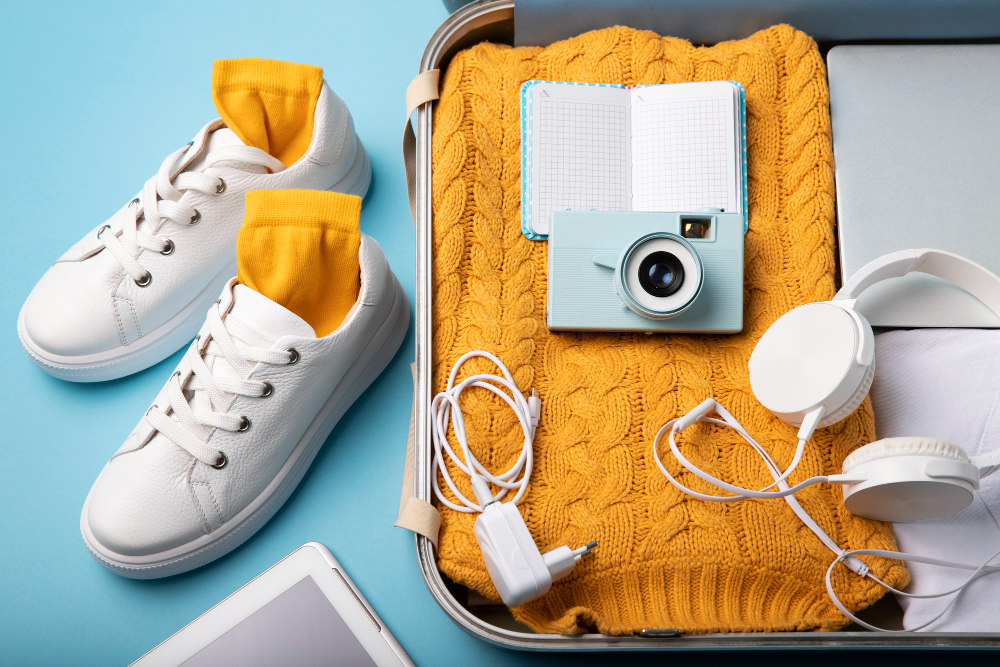
It’s tempting to bring multiple pairs of shoes “just in case,” but shoes are bulky and take up a lot of space. Aim to pack only one versatile, comfortable pair that works for multiple occasions. For example, a supportive pair of sneakers or loafers can handle both sightseeing and casual dinners. If a second pair is necessary, make it something lightweight, like flip-flops or foldable flats. Limiting shoes frees up room in your suitcase, lightens your load, and simplifies your packing process.
5. Roll, Don’t Fold Your Clothes
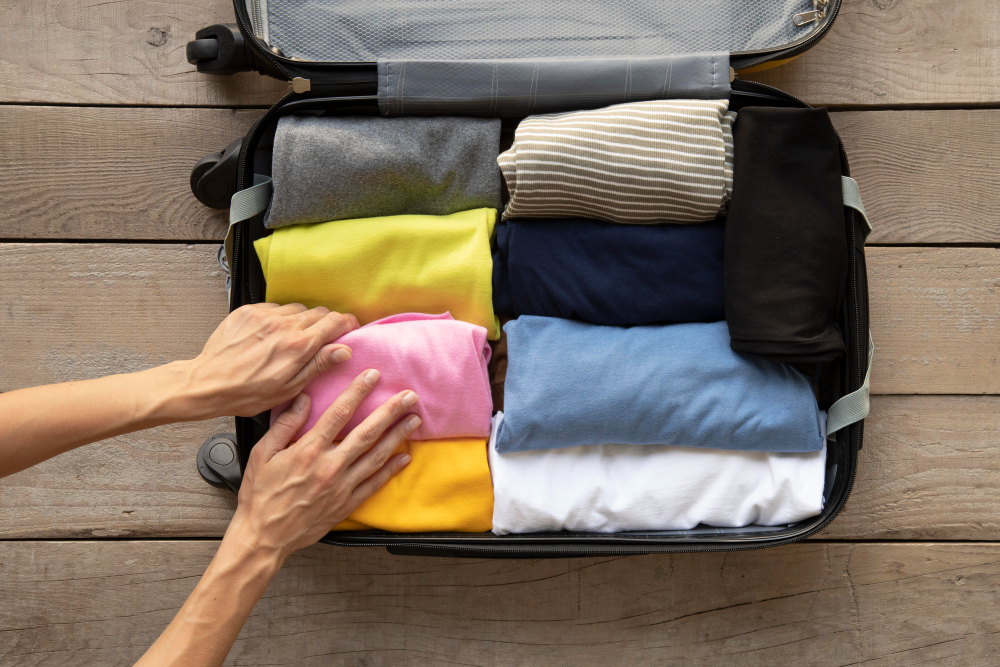
Rolling clothes instead of folding them can save space and minimize wrinkles, a win-win for any traveler. Rolled clothes are more compact and can fit neatly in your suitcase, allowing for more efficient use of space. This method also makes it easier to see everything in your bag and access items without disturbing the rest. Additionally, rolling can help prevent creases and wrinkles, so your clothes stay looking fresh. Try rolling your clothes to make packing less stressful and more organized.
6. Leave “What-If” Items at Home
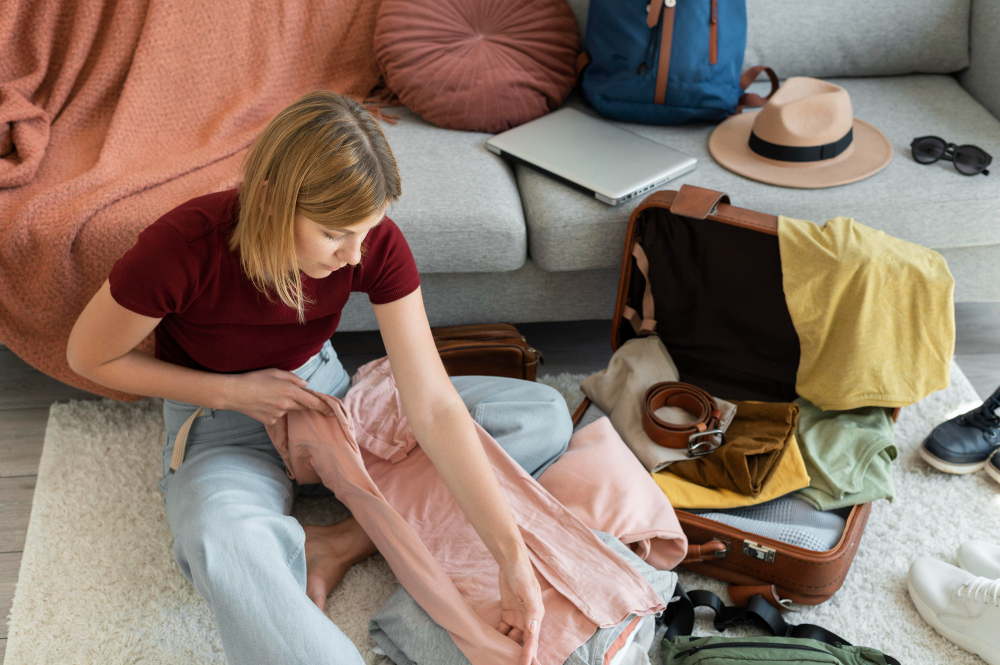
Overpackers often fill their suitcases with “what-if” items, like an extra sweater or formal wear that rarely gets used. Rather than preparing for every possible scenario, stick to items you know you’ll need. Ask yourself how often you’ve used similar “just-in-case” items on past trips. By eliminating these extras, you’ll make your suitcase lighter and avoid stress over items you might never use. Packing only for likely situations can reduce clutter, making your luggage more manageable and travel less worrisome.
7. Use Travel-Sized Toiletries
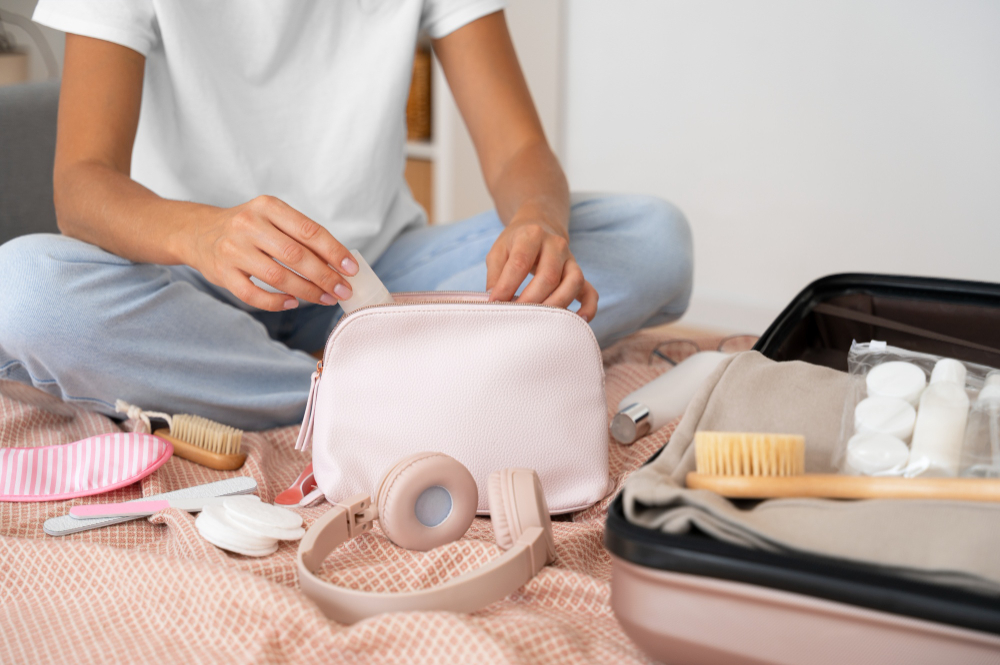
Toiletries are often a source of overpacking, especially when full-sized bottles are involved. Invest in travel-sized containers or buy pre-packaged mini versions of your essentials. Travel-sized items save significant space and ensure you meet TSA guidelines for liquids. By streamlining your toiletries to the basics, you’ll prevent unnecessary weight and bulk in your bag. Plus, you can always buy what you need on the road if something runs out. This simple swap makes packing easier and leaves room for more essential items.
8. Plan to Do Laundry

For longer trips, doing laundry is an easy way to keep your suitcase light. Rather than packing more clothes, plan to wash items halfway through your journey. Many accommodations offer laundry services, or you can find local laundromats if needed. Doing laundry during your trip means you can pack less and still have fresh outfits. This approach reduces the need to bring multiple outfits for every day, leaving your suitcase more organized and giving you room for souvenirs or other essentials.
9. Go Digital with Books and Maps
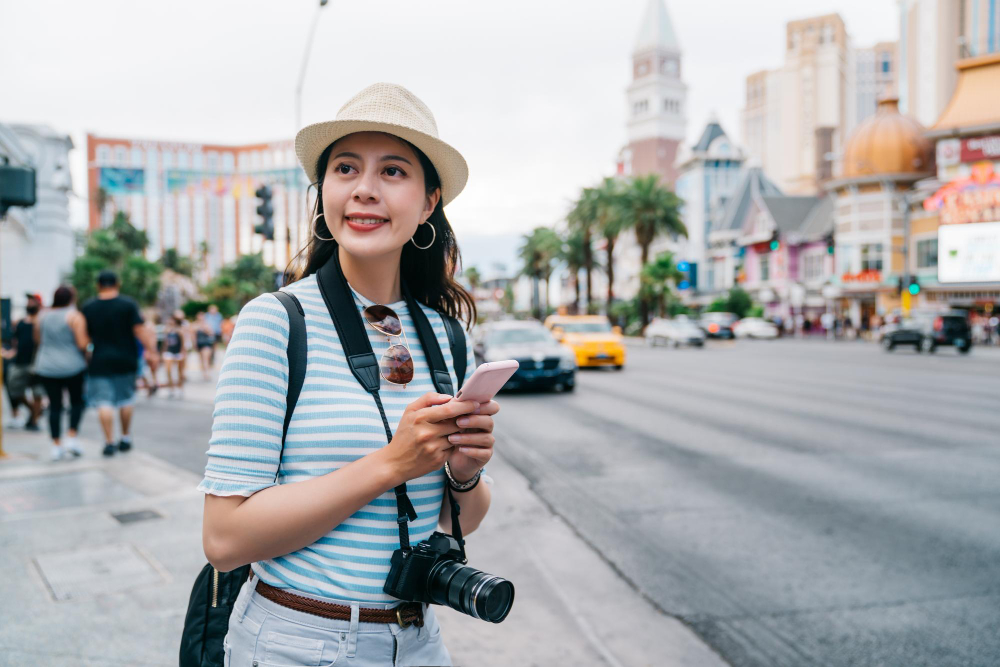
Books and maps can weigh down your luggage quickly. Switching to digital versions saves valuable space and lightens your load. Most smartphones or tablets allow you to download books, travel guides, and maps, giving you access to your materials without the bulk. Plus, digital versions are often more convenient and easier to use on the go. By going digital, you’ll pack lighter, avoid carrying heavy books, and simplify navigation, making your trip more enjoyable and manageable.
10. Invest in a Smaller Suitcase
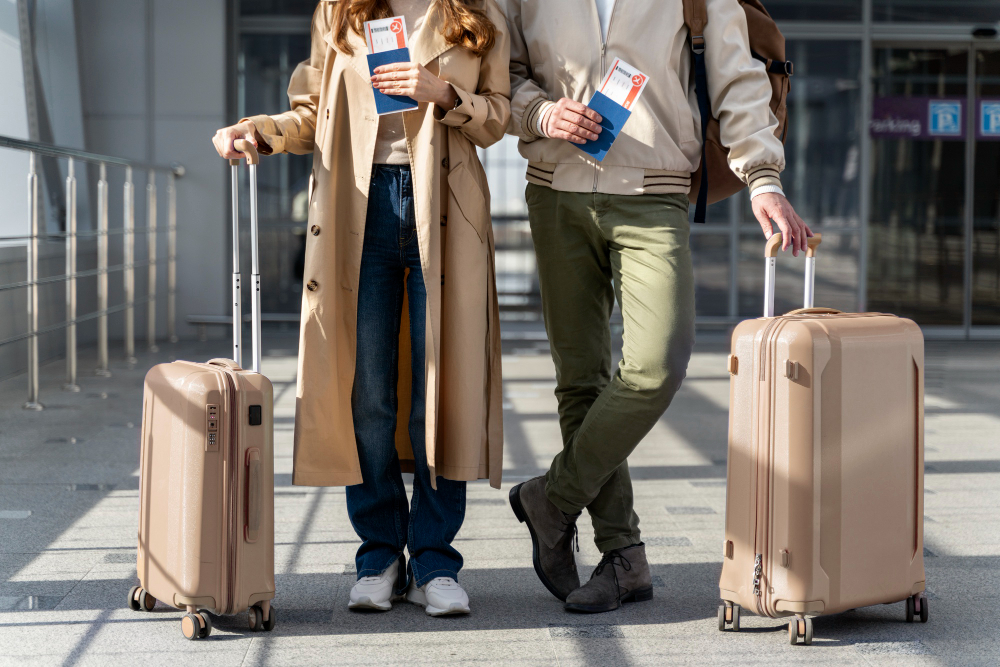
Sometimes, the best way to avoid overpacking is to use a smaller suitcase. A compact bag naturally limits what you can bring, helping you prioritize essentials over extras. Look for a suitcase with multiple compartments for organization. With less space, you’re encouraged to bring only necessary items and skip the “just-in-case” fillers. Using a smaller suitcase not only lightens your load but also saves you from airline baggage fees, making travel smoother and less stressful.
11. Lay Out Everything First

Before packing, lay out everything you plan to bring on a bed or table to help visualize your choices. This step helps you assess what you truly need and identify duplicates or unnecessary items. By seeing everything at once, you can easily spot items that don’t belong and streamline your selection. This pre-packing method helps you make smarter choices, pack lighter, and avoid stressful last-minute additions, giving you a more organized and efficient packing process.
12. Practice Minimalist Packing Mindset
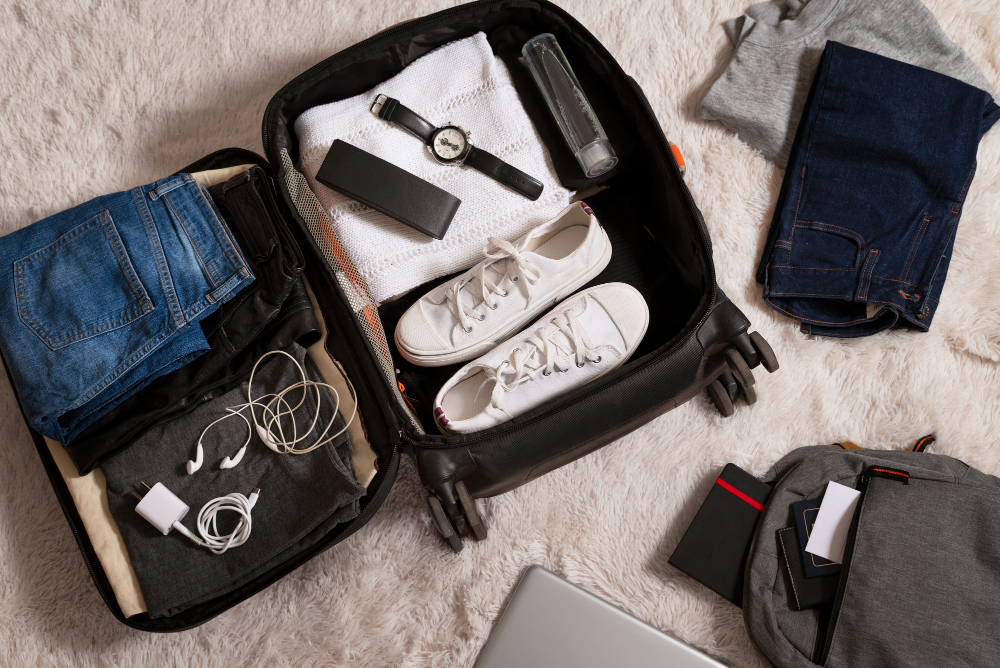
Adopting a minimalist packing mindset helps you focus on essentials and avoid unnecessary extras. With minimalism, you bring only items you’ll use daily, steering clear of bulky, seldom-used items. Try asking yourself if each item is truly necessary before adding it to your bag. Over time, this habit makes packing easier and helps you feel less burdened by heavy luggage. The minimalist approach can transform your travel experience, allowing you to enjoy your trip without the stress of overpacking.
